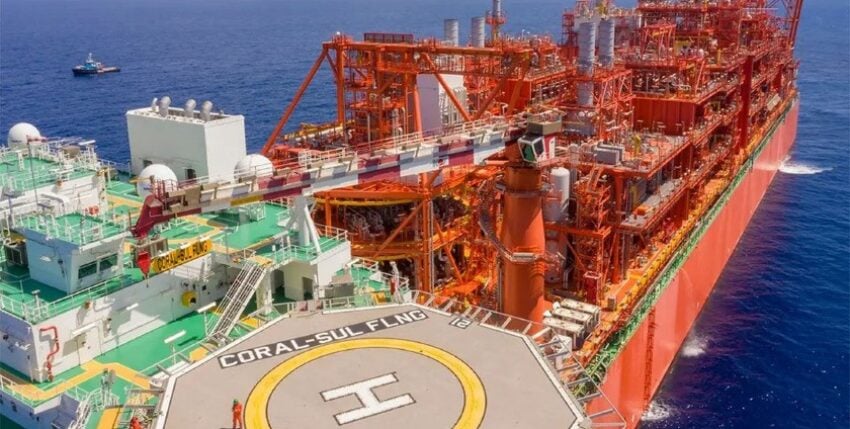Last year, European energy policy changed significantly due to the Russia-Ukraine war and the European and American sanctions imposed on Russian exports as a result - a new energy era is dawning. The Western policy of setting upper limits on the supply of energy resources from Russia will not only split the global oil market: on the one hand, Russia now supplies most of its energy to India and China - on the other hand, the energy gap in Europe will have to be closed by supplies from the USA, the Middle East and Africa.
Questions about the future
The fundamental questions about the actual development of the energy market in the coming months and years and about the functional security and long-term effects of the sanctions on the price development of various forms of energy remain unanswered. In order for Europe to rapidly reduce its dependence on Russian energy imports, the search for new sources is now essential.
First answers
In the Financial Times, Claudio Descalzi, CEO of Eni (oil and gas multinational, Italy), said that the EU should finally consider Africa as a new source of energy. The option of European-African co-operation on energy issues is better than relying on the US market. The materials we need for our energy are available there. "Africa offers the potential for a new South-North axis that connects the continent's abundant renewable energy and fossil fuels with Europe's energy-hungry markets." Recognising this shift, Eni has increased its focus on African energy resources over the past year. When the Italian government sought to replace more than 20 billion cubic metres of gas it had previously imported from Russia, Eni quickly turned to its African partners for additional supply.
Africa's energy countries
Algeria has benefited greatly from the emerging south-north energy trade. In April, Eni reached an agreement to increase Algerian gas supplies to Italy via the Trans-Mediterranean Pipeline by three billion cubic metres per year to nine billion cubic metres by 2024.
Mozambique is also ready to reap the rewards of an African-European energy trading partnership: Mozambique recently exported its first shipment of LNG to Europe via the terminal operated by Eni (see photo).
Also Egypt and the Ivory Coast are increasing their LNG exports to Europe. Egyptian liquefied natural gas deliveries alone rose to over eight million tonnes (around 4 billion cubic metres) in 2022; 90 percent of these LNG exports were destined for Europe.
Two key elements
On the one hand, Descalzi rightly emphasised that foreign oil companies and energy corporations must create added value for the local population. Only in this way could an energy alliance between South and North offer a solid perspective in the long term and gain broad acceptance.
Secondly, the shift in energy supplies from terrestrial east-west pipelines to ship transports around Africa and undersea south-north pipelines will place significantly greater demands on the navies of the western world - transports and infrastructure must not be left at the mercy of known and newly recognised threats without coordinated protection.








